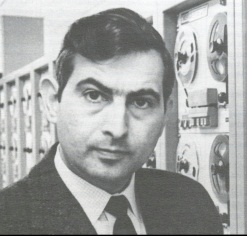
How to Learn a Foreign Language by Paul Pimsleur
For me, this is the perfect book on learning a new language.

It is all the things most language–learning tools are not. It’s direct, full of useful pearls of wisdom that can be easily incorporated into one’s day-to-day study of a new language. It’s clear and well-written — and nowhere does “academic speak” sneak in to the text. Most importantly, in the book Paul Pimsleur gives it to you straight: in this 30-year-old time machine we get what is still contemporary wisdom, straight from the professor’s pen.
Paul Pimsleur’s theories, as expressed in How to Learn a Foreign Language, are deceptively simple. In his own teaching, Dr. Pimsleur saw students repeatedly failing and being turned off of what to him was the most exciting challenge in the world: learning a new language. From his research he came up with Guidelines to put back the excitement and fun in language learning.
The book speaks equally to the different kinds of would-be language learners –– from those who thought themselves scarred for life by High School Spanish Hell to the more confident learners who want to approach the full range of different languages. You’ll be surprised at the Foreign Service Institute’s grouping of “easy” to “hard” languages: what language ranks where isn’t entirely obvious.
Paul Pimsleur was very direct in his advice on what to look for in a teacher: from when the classroom experience is not going to help you learn and when it is, to when you’re within your rights to object to your time being wasted by methods that aren’t going to teach you anything.
A lot of what I’ve come to know as the Pimsleur Method is developed from the ground up in this book.
As Pimsleur walks you step-by-step through his straightforward advice on how to learn a language, he sets out the principles of The Pimsleur Method, answering many of the questions I’ve had about the reasoning behind the program. By the end of this short book, you’ve gotten the benefit of his years of experience and the results of his research that lead to defining the behaviors proven to result in your learning a new language more easily.
It’s a book that could enhance the experience of any language program – whether classroom, purely independent study, Pimsleur, or (gasp) Rosetta Stone. Much of the book discusses how to choose the language you should study, based on your need/desire, but also on degree of difficulty and the range of usefulness, and then how you might go about building a study plan that fits your particular learning style.
 I’m lucky to be in frequent contact with Dr. Pimsleur’s wife, Beverly, and his daughter Julia (whose company Little Pim is churning out future Big Pim customers), each of whom cheers us on in spreading the word about Pimsleur. As importantly, they each keep Paul Pimsleur from becoming a lifeless statue, constantly providing insights and anecdotes that enable us to think of him as present in our daily business.
I’m lucky to be in frequent contact with Dr. Pimsleur’s wife, Beverly, and his daughter Julia (whose company Little Pim is churning out future Big Pim customers), each of whom cheers us on in spreading the word about Pimsleur. As importantly, they each keep Paul Pimsleur from becoming a lifeless statue, constantly providing insights and anecdotes that enable us to think of him as present in our daily business.
Dr. Paul Pimsleur was always in the forefront: in the 1960’s he was responsible for developing the first computerized language laboratory at Ohio State University where he set up a venture with Ohio Bell Telephone Company that enabled students to learn at their own pace, dialing in directly to hear pre-programmed tapes. I can’t help but think he’d admire the revolutionary Course Manager App we’ve developed. And he’d be inordinately pleased with the 50 languages we now offer.
Once you start reading How to Learn a Foreign Language, you’ll find it hard to put down. And you’ll remember what you read. Paul Pimsleur’s wisdom is as valuable today as it was when this book was originally published in 1980.